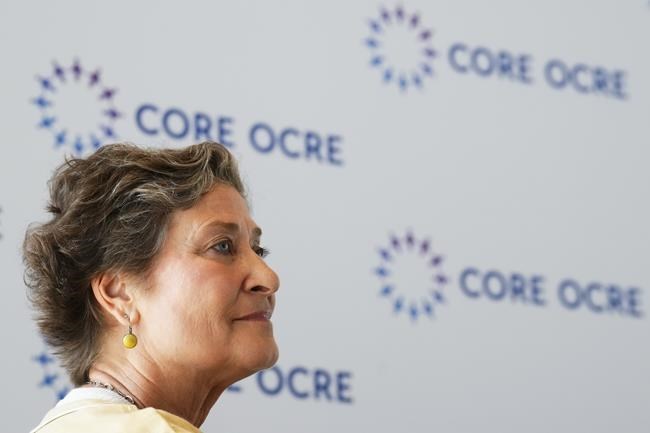OTTAWA — Advocates are calling on Ottawa to profoundly change the powers of the watchdog who monitors Canadian corporations operating abroad, as the Liberals review how a new ombudsman should take on the job.
"We have communities that are suffering human-rights and environmental harms, because of the operations of Canadian companies outside of Canada," said Karen Hamilton, director of the advocacy group Above Ground.
The Trudeau government replaced a monitor for the mining sector five years ago with what it called the Canadian Ombudsperson for Responsible Enterprise, or CORE.
Originally, the Liberals said the watchdog would have the power to compel documents and testimony. But the government left those powers out of the mandate when it launched the role in 2019.
It also constrained the office's work to the mining, petroleum and garment sectors, despite describing the role as having a wider mandate.
The first ombudsperson, Sheri Meyerhoffer, completed her five-year term on-schedule last week.
Global Affairs Canada has announced that one of its on-staff lawyers, Masud Husain, would be her interim replacement. But the office of Trade Minister Mary Ng later said he will be Meyerhoffer's full successor following an official cabinet order.
Ottawa has also announced a review of the position, saying it will decide later this week whether to change the scope of the office. Hamilton said that's an opportunity to go beyond "half-measures" and give the role some teeth.
"If we don't improve the CORE, we spent a lot of money on an office that doesn't accomplish very much when it has the potential to," she said.
Her group is part of the Canadian Network on Corporate Accountability, which for years argued that Ottawa needs to empower the watchdog with the ability to compel documents and testimony. Meyerhoffer herself has argued for such powers.
Meyerhoffer only launched her first investigations last summer — four years into her mandate — and completed just one case in March, finding a Vancouver firm had not done enough to prevent possible slave labour in China.
Hamilton noted that this investigation included a statement from Meyerhoffer that "is quite buried in the website" and wasn't part of the press release sent to reporters.¬Ý
In the statement, Meyerhoffer noted the "enormous potential to strengthen" her role, and she said that not being able to compel documents or testimony from the company she was investigating made it hard to tell what the firm was actually doing.¬Ý
"Government can and should better equip the CORE to fulfil its mandate," she wrote.
"The ombudsperson must be able to uncover why, and how, companies are falling short of their responsibilities. We need to hear it directly from them, and we need to share that information with the public."
Liberal MP John McKay publicly confronted Ng in 2021 about why his government reneged on allowing Meyerhoffer to compel evidence. He is now hoping the government follows through.
"The next CORE officeholder needs the capacity to compel the production of documents and the testimony of witnesses, and hopefully the Government of Canada will include these necessary powers," he wrote on the platform X.
He added that Meyerhoffer did "an impressive job" in conducting professional investigations.
Days before finishing her role, Meyerhoffer also convinced activists to withdraw a complaint accusing Hugo Boss of forced labour. She wrote that her announcement of an investigation led to informal mediation, where the company "provided a satisfactory response or remedy to their allegations," though she didn't provide more detail.
Meyerhoffer also announced a development in her probe against Canadian mining firm GobiMin Inc., which divested its assets in the Xinjiang region of China where there were allegations of Uyghur slave labour, "to a buyer who made public commitments to respecting international human rights."
Yet Hamilton said the government can't rely on companies to do the right thing.
"If you cannot compel companies to produce testimony and documents, many companies will not engage meaningfully."
This report by The Canadian Press was first published May 5, 2024.
Dylan Robertson, The Canadian Press




